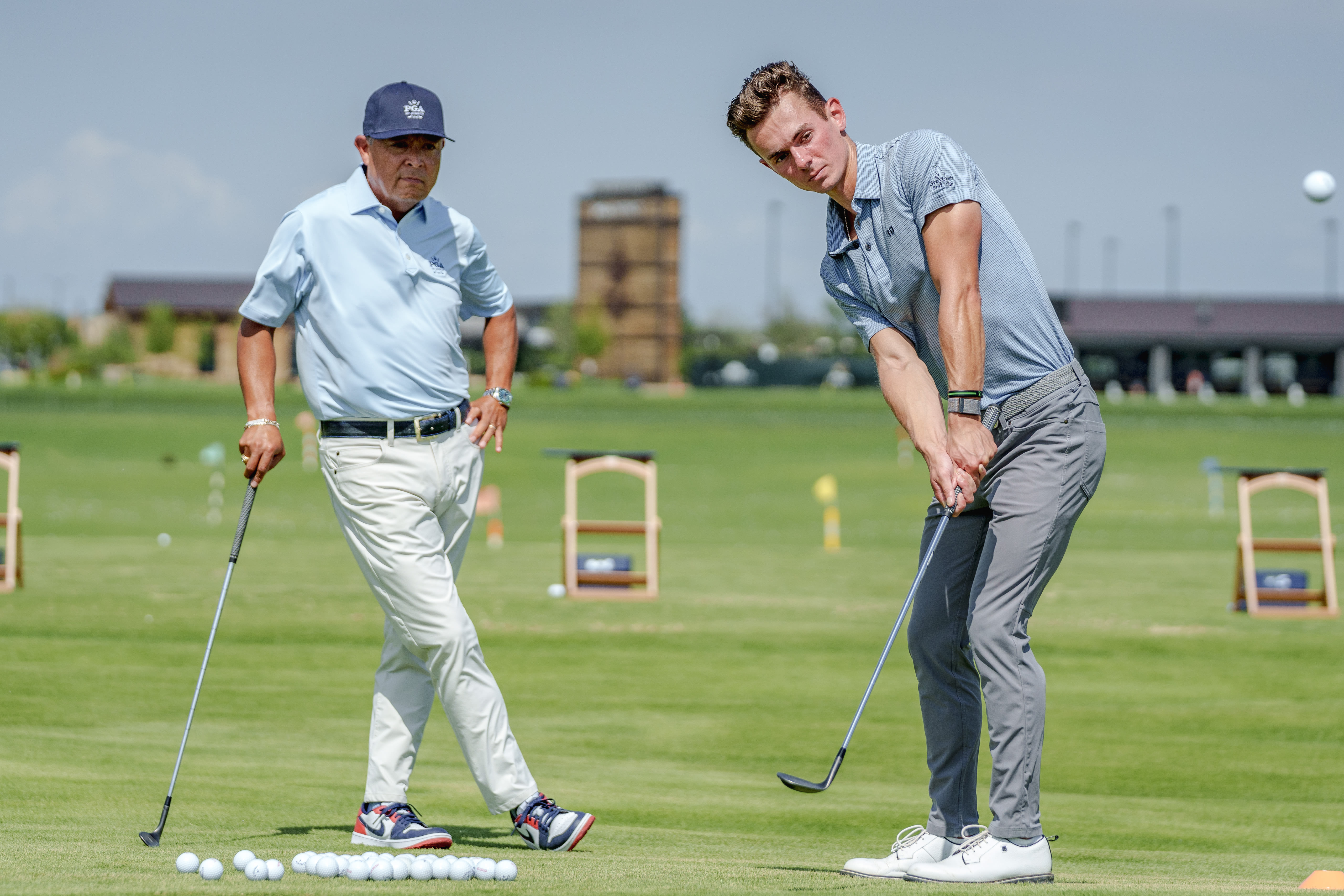Gear Up for Competition with Play to Compete
Overview
- Ages: Boys 16-23 and Girls 15-21 (Please note: Ages are guidelines, not restrictions)
- Primary Focus: Competition. Focus on achieving peak performance and developing a year-round, long-term approach to golf. Players should spend 60% of their time on competition-training and competition, with coaches overseeing all aspects and parents providing support. Fitness experts play a critical role in injury prevention.
- Competition Level: Develop a competition calendar in collaboration with coaches and review performance annually.

Skills and Development
- Athletic Skills: Focus on agility, footwork, balance, strength, endurance, speed, power, and flexibility. Create individualized annual plans and monitor for overuse injuries and mental burnout.
- Technical Skills: Emphasize repetition of fundamental skills while curbing bad habits. Innovate, tweak, fine-tune, and master skills.
- Psychological Development: Promote self-defined enjoyment, participation, flexibility, responsibility, respect, leadership, and mental toughness. Encourage communication and interpersonal skills alongside long-term goal setting.
- Social Development: Foster independence and logical, deductive reasoning. Encourage healthy relationships with mentors and adults.

Play Guidelines
- Practice: Conduct practice sessions 32-42 weeks a year, totaling 30-40 hours weekly, broken into three to four-hour sessions. Regularly review and adjust practice schedules with a coach.
- Competition: Formulate a personalized competition plan based on age and development. Annual performance and competition planning should be reviewed with the coach.
- Equipment and Safety: Utilize custom-fit equipment as the norm at this stage to optimize performance.
- Where to play:
- Course length recommendations:
- Males: Up to 7,200 yards.
- Females: Up to 6,400 yards.

Most golfers will transition into the Play Golf for Life stage at this age and stage.
Explore Additional Stages:
